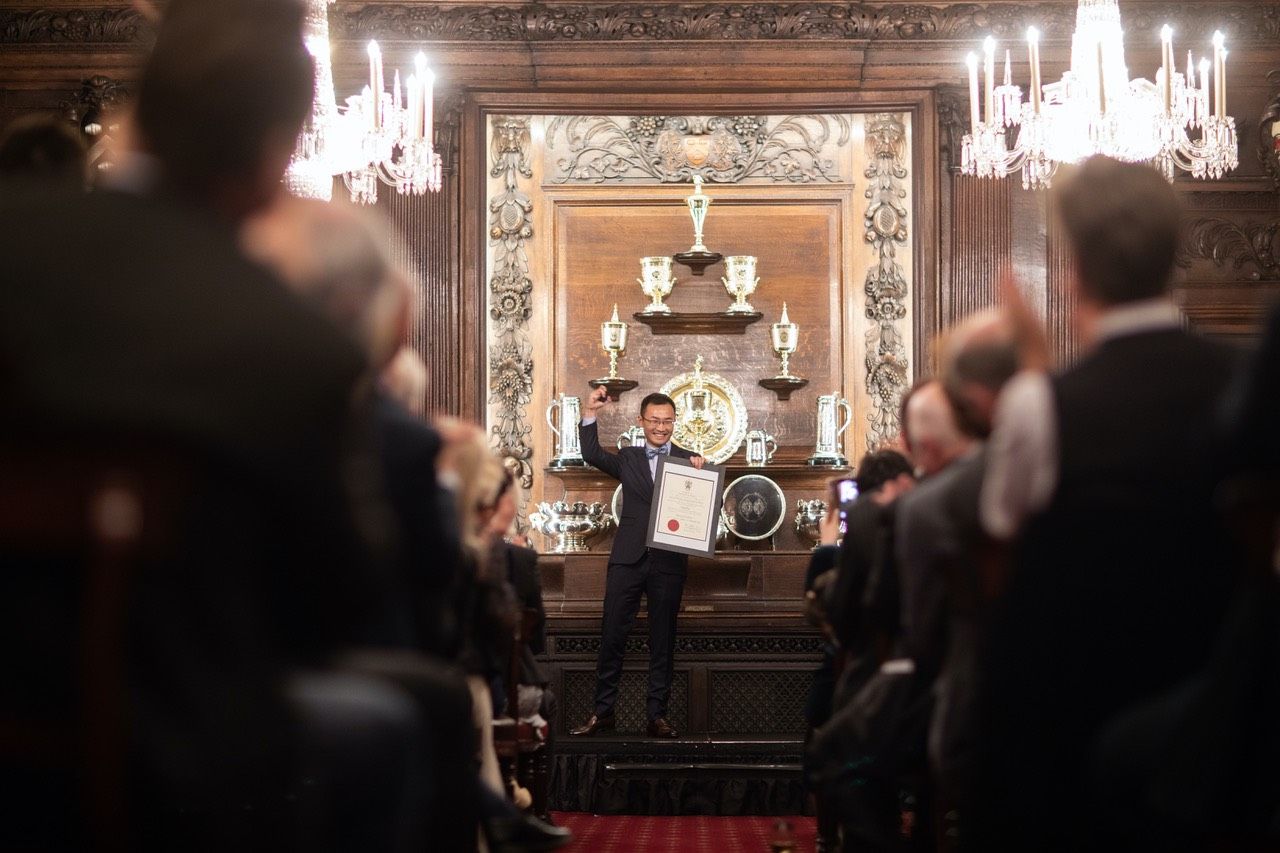The expert wine educator on what it takes to become a Master of Wine, why he doesn’t believe in pairing and what he thinks is the world’s greatest wine
Less than 500 people have passed the Master of Wine exams since 1953, and there are currently just 420 Masters of Wine in the world. That’s fewer people with MW after their name than have been to space. This is partly because the exams to achieve the coveted qualification from the UK-based Institute of Masters of Wine—comprised of extensive theory learning, blind tastings and a 10,000-word research paper—are notoriously rigorous, taking a minimum of three years to complete with pass rates of around just 10%. In our latest series, Meet The Master, we talk to MWs about their journey to mastery, those formidable exams and what in the wine world is wowing them right now, from fun pairings to under-rated regions to the rapid developments taking place within wine in Asia.
Gus Zhu’s experience runs the gamut. Not only does he hold a Master’s in Viticulture and Enology from UC Davis but he has experience as a cellarhand in Napa Valley, an oral translator at wine seminars and a wine judge, and has excelled in education, teaching the WSET and serving as an Ambassador of Napa Valley wine education, not to mention working as a wine trainer at Dragon Phoenix Wine Consulting, the wine education company and consultancy founded in China by fellow Masters of Wine Fongyee Walker and Edward Ragg. To boot, Zhu is also the first Chinese National to achieve the Master of Wine, which he completed in 2019. Today he he runs his own consultancy offering private tutoring for wine students.
Do you have any early wine memories that were significant or impacted your decision to pursue a career in wine? If not, what made you want to pursue a career in wine?
For most people, their deepest memories are often associated with the sense of smell, because the emotional centre and the olfactory bulb (the receptor of odours) are tied together in our brain. I have been very sensitive towards smells—although I didn’t have the language to communicate different types of smells—ever since I can remember.
When I attended my first wine appreciation class with professor Huiqin Ma at the China Agricultural University, the wonderful smells of wine got me hooked. Later, just as I was about to finish my undergraduate degree, professor Ma mentioned that Dragon Phoenix Wine Consulting, which was founded by Fongyee Walker MW and Edward Ragg MW needed someone to help. They helped me realise that my life-long career is related to wine.

Why did you decide to attain your Master of Wine and what were the greatest challenges for you in achieving it?
It was by accident. When I was working on my Master of Science degree in Viticulture and Enology at UC Davis, the Institute of Masters of Wine held an introduction to the Master of Wine programme at the Robert Mondavi winery in Napa Valley, California. I signed up to meet wine professionals and to enjoy the fabulous wine dinners at the winery. At the end of that event, an entry exam to the Master of Wine programme was included. I gave it a try and somehow I was accepted.
The greatest challenges were the areas that I was not familiar with, namely wine business and marketing, as my speciality is on the scientific side of wine production. To overcome such weaknesses, I signed up for part-time work in wine logistics, direct-to-consumer sales and contacted many people worldwide who specialise in wine business. In the end, I not only passed all the examinations on the first attempt, but also made more friends.
What qualities do you think you need to have to become a Master of Wine? Do you have any advice for others who might be looking to achieve the MW?
Critical thinking skills. The Master of Wine examinations plus the final research paper are not just about knowing the facts but also—and perhaps more importantly—about analysing what’s going on in the global wine industry. To anyone who is looking to achieve the MW, my advice is that he/she must know it’s about problem solving for the industry rather than memorising information.
What is the most common question you get asked when people find out you are a Master of Wine and how do you answer it?
The most common question is of course: What is a Master of Wine?
My answer is: it is about becoming a member of the Institute of Masters of Wine. To become a member, you apply for entry, pass two stages of difficult examinations on all aspects of the world of wine, pass the stage 3 research paper, pay the membership fees, and finally, sign the code of conduct of the Institute of Masters of Wine.
